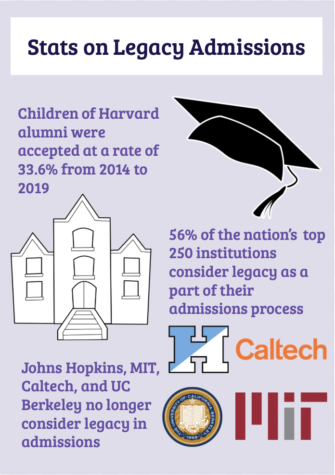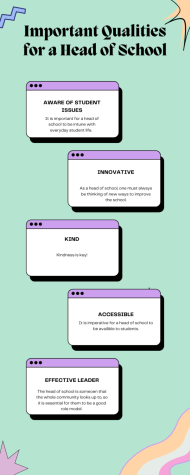Editorial: Chat GPT
“Meet ChatGPT, the brainiac bot who knows more than a librarian and can chat up a storm better than your BFF!”
Chat GPT just wrote the opening to my article, could you tell? Taken directly from the Chat GPT, using the prompt “write a lead sentence for a news article that explains what Chat GPT is in a fun dynamic way.” This is just one of the things that Chat GPT can do.
Chat GPT is the newest AI technology. With the extensive things that Chat GPT can do, it has prompted conversation for schools like Hackley over when, if ever, it’s appropriate to use it in a school setting. These technologies will become more powerful and ubiquitous in the coming years, and it is definitely not something that schools should ignore as it is not going away.
Chat GPT has the capability to do many things. It can write poems, act like a character from a certain movie or book, write essays, summarize articles, etc.
Although Chat GPT can do some incredible things, there are limitations and downsides to the accuracy of the information it provides. Chat GPT is not connected to the internet, and instead, it draws on billions and billions of documents that were made available to the Chat GPT universe. Since it is not connected to the internet, there are limitations on some of the products they put out. Chat GPT also does not have information about events past 2021. Chat GPT also can provide misinformation and will sometimes make up sources.
Stephen Fitzpatrick, the history teacher, has been interested in the release of Chat GPT. He found out about it in mid-late December, after its release in late November. Mr. Fitz, since then, has experimented with the extensive capabilities of artificial intelligence.
Mr. Fitz said that “schools should embrace Chat GPT as an educational tool for the future. We can’t pretend that it doesn’t exist, and this type of technology definitely is not disappearing or going anywhere.”
“The quality of the work that Chat GPT produces is not as impressive as how quickly they do it,” said Mr. Fitz.
Mr. Fitz has considered the question of which parts of Chat GPT can be a helpful and beneficial tool for students and ways in which students could use Chat GPT nefariously. With the development of this AI, there is obviously a potential for cheating with students.
Mr. Fitz has tested Chat GPT’s various features using information coinciding with his 10th-grade history class.
One of the ways he tested out Chat GPT, was by inserting one of the 10th-grade research paper prompts and prompting Chat GPT to write an outline. He reported that the outline was actually pretty decent.
Mr. Fitz has also experimented with summarizing passages from the 10th-grade history textbook and asking Chat GPT to summarize some of the assigned readings into a few main points. Mr. Fitz acknowledged that he would obviously prefer for the student to read the whole readings that he assigns, but he also reflected on the fact that when a student reads a heavy reading, they may not understand or grasp the main takeaways of the passage. He questioned if that is really cheating. Mr. Fitz also reflected that he might rather have the students understand the main takeaways rather than not understand the important points of the readings. When Chat GPT summarizes the readings, it makes them much more digestible.
A helpful tool of Chat GPT is that it is a peer editor 24/7. Chat GPT can give feedback on a rough draft of an essay. It can tell you where you need transitions or parts of the essay that are confusing and might need clarification.
Mr. Fitz considered that having a peer editor at your hands all the time is not the worst thing in the world.
On the other hand, Mr. Fitz obviously does not want a student putting in Chat GPT “write a five-paragraph essay on the American Revolution.” That is the part of it that Mr. Fitz and the teachers at Hackley are worried about. Chat GPT can be a great tool if used in the correct way.
Additionally, users of Chat GPT have to be careful of the accuracy of the information that Chat GPT provides.
Mr. Fitz also tested the accuracy of the information that Chat GPT provided. Mr. Fitz prompted Chat GPT to write a research paper with sources. Mr. Fitz put the links of the sources that Chat GPT outputted and discovered that some of them were fake and did not exist on the internet.
On the administrative side of things, Head of School Michael Wirtz and Upper School Director Andy King have had to consider how to approach the invention of Chat GPT.
Along with considering the research provided by Mr. Fitz and other resources explaining the capabilities of Chat GPT, Mr. Wirtz attended a webinar sponsored by Global Online Academy, which Hackley is a member of, for heads of schools discussing the topic of generative AI. Following the webinar, Mr. Wirtz wrote up a scoping document and thought through the process of gathering teachers and administrators to examine the implications of AI at Hackley.
The department chairs and administrators met together to discuss the plans for dealing with Chat GPT and other possible artificial intelligence tools that may be created in the future. Mr. Wirtz said that the plan is to get a group together and do some extensive research on Chat GPT and, in the fall of next year, share the findings with the community with guidance and insights into what this new technology means for the school.
Mr. Wirtz also acknowledged that AI is already out there, and there is nothing we can do about that. Instead of ignoring it, we have to lean into it and embrace it. “Hackley is not going to take the New York City Public School approach and ban it on campus. We have to work with it and not against it,” said Mr. Wirtz.
Mr. King described Chat GPT as a “disruptive innovation.” He said that Chat GPT is an unbelievably powerful tool and that Chat GPT creates an exciting challenge for teachers. With the development of this technology, teachers are forced to adapt their teaching as they have to think about how to adjust the research questions they ask and consider how to adjust essay prompts to make them less prone to the use or the misuse of Chat GPT and AI.
Mr. Fitz said that one of the biggest worries of Chat GPT is that it does the thinking for you, which is something at Hackley that teachers strive to teach students how to do.
“At Hackley, we don’t ban Wikipedia. We just think of it as a source that one can consult. Chat GPT can become a work that we consult, but we have to learn to cite it and vet it to ensure that we are getting accurate information,” said Mr. King.
The history department came out with an official policy about Chat GPT. Essentially, students are not permitted to use Chat GPT with any submitted work.
Chris Loomis, History Department Chair, said that the biggest obstacle that Chat GPT presents is that it challenges many of the goals that teachers have in order to teach students effectively. Mr. Loomis said that some of the goals of teachers are to “teach students how to think and write. The other goal is teaching students how to build good character and part of that is teaching students to be honest. Additionally, it is important for us to build students who have good character and who are honest.”
Mr. Loomis said that the problems with Chat GPT are more of an honesty issue rather than a technological challenge. Teachers want students to be forthright about the work they produce. There is no change in the academic policy in terms of academic integrity, rather the policy around the use of Chat GPT is a way of informing students where Chat GPT fits into this rule. “It would not matter if it was Chat GPT or a cheat sheet, it matters more that Chat GPT could be used to submit work dishonestly.” Mr. Loomis said that Chat GPT could be a learning tool in the future. “For now we want to stick with a human-centered process for students to think and write,” Mr. Loomis said.
Mr. Loomis is concerned about Chat GPT being used as a substitute for thinking and writing. The concern is that rather than the student gaging the problem, putting forth the effort to work through the problem, and putting it on the page, students are putting stuff into the chat box and then you get an answer that spits back. That is harmful to the students’ learning.
There could be cool potential ways that Chat GPT could be incorporated into the writing process going forward yet that is the future. “The honesty aspect is a hard line, writing tools are not a ‘no,’ instead it’s a ‘not now,’” said Mr. Loomis. Another goal of the policy is to help students help themselves. Mr. Loomis states that having a policy that is clear and something that students can navigate successfully is imperative as teachers want to help students make good decisions. It is important for students to talk to their teacher if they are unsure if something is in or out of bounds.







